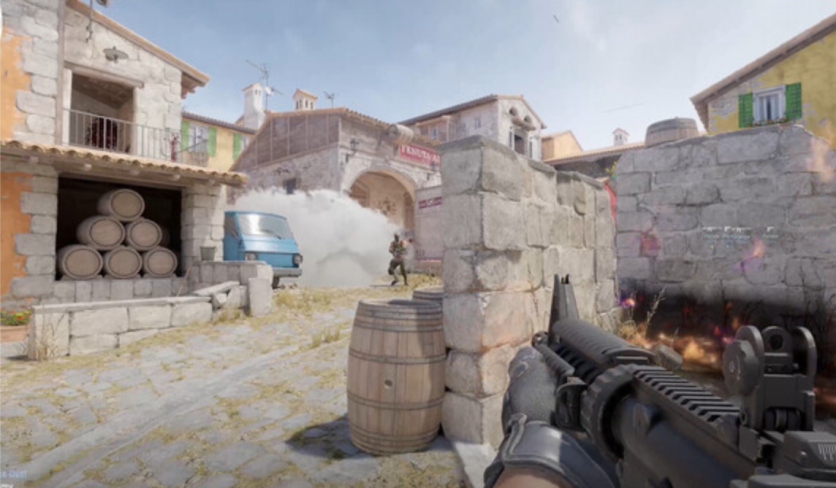More anti-cheat measures are being placed by Valve on its first-person shooter (FPS) title, Counter-Strike 2, and it is targeting Razer and Wooting keyboards with the 'Snap Tap' feature. Players would either face a removal from their current match or a ban in the future when caught by Valve's system using this technology when playing the shooter game.
Valve's Counter-Strike 2 to Ban Players Using Razer, Wooting Keyboards

A new update from Valve has recently announced its proactive approach against cheating in Counter-Strike 2, with the company vowing that it will go as far as to ban players when caught using automation. This points out to the specific feature found on Razer and Wooting's keyboards which are known for having automation features that give these players unfair advantage over others.
It was revealed by Valve that there are automation and scripting player commands are accepted, particularly with the use of "jump-throws."
However, the latest hardware from Razer and Wooting crossed its line, saying that there is a distinction between "manual input and automation."
Read Also : Valve's SteamOS Coming to ASUS ROG Ally? Rival Handhelds to Get Access to Steam Deck System
'Snap Tap' Feature on Razer and Wooting Peripherals
Valve pointed out to the Simultaneous Opposing Cardinal Directions (SOCD) technology found on Razer and Wooting's keyboard peripherals.
Razer calls this the 'Snap Tap' feature and is available on its Huntsman V3 Pro keyboard lineup, with the company being the first to introduce this last month.
On the other hand, Wooting followed Razer's footsteps and introduced the 'Snappy Tappy' feature which is the same thing.
According to Valve, users should disable these features when entering a match to avoid interruptions. Moreover, players who are caught using it would be kicked off the match and go as far as to face a ban.
Anti-Cheating Measures in Place for Gaming
Cheating has been one of the most notorious problems in gaming over the past years, and while many get away with their systems or hacks in place, developers are actively rooting these up to promote fair play. Valve is among those developers who demote cheating behaviors, and it has since been notorious for banning players in its previous FPS, CS: GO.
Another company famous for putting massive development in anti-cheating systems is Activision Blizzard, particularly with its anti-cheat team known as Ricochet. The system is known for protecting Call of Duty, one of the most popular and largest action FPS games in the world, with the developers going against cheaters who promote unfair play in combat.
One of the most toxic traits in gaming is cheating, apart from the verbal abuse and anger issues that thousands of players suffer from an aggressor on the platform.
Valve is not backing down, and it is targeting both hardware and software methods of cheating in Counter-Strike 2, with players caught using Razer and Wooting's Snap Tap feature to face a penalty as grave as bans in the game.
Related Article : Counter-Strike 2 Gets a Major Update, Community-Made Maps Now Available

ⓒ 2025 TECHTIMES.com All rights reserved. Do not reproduce without permission.




